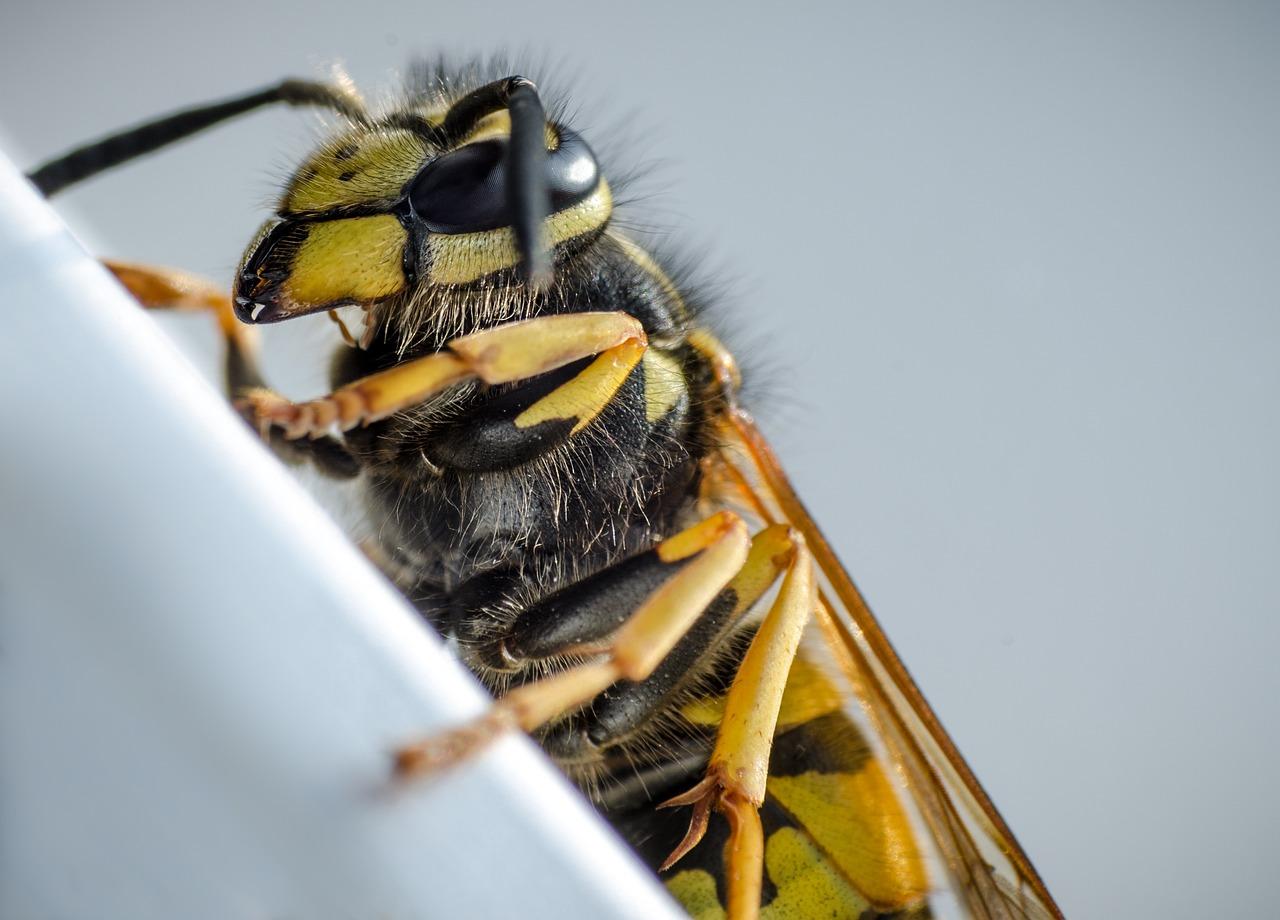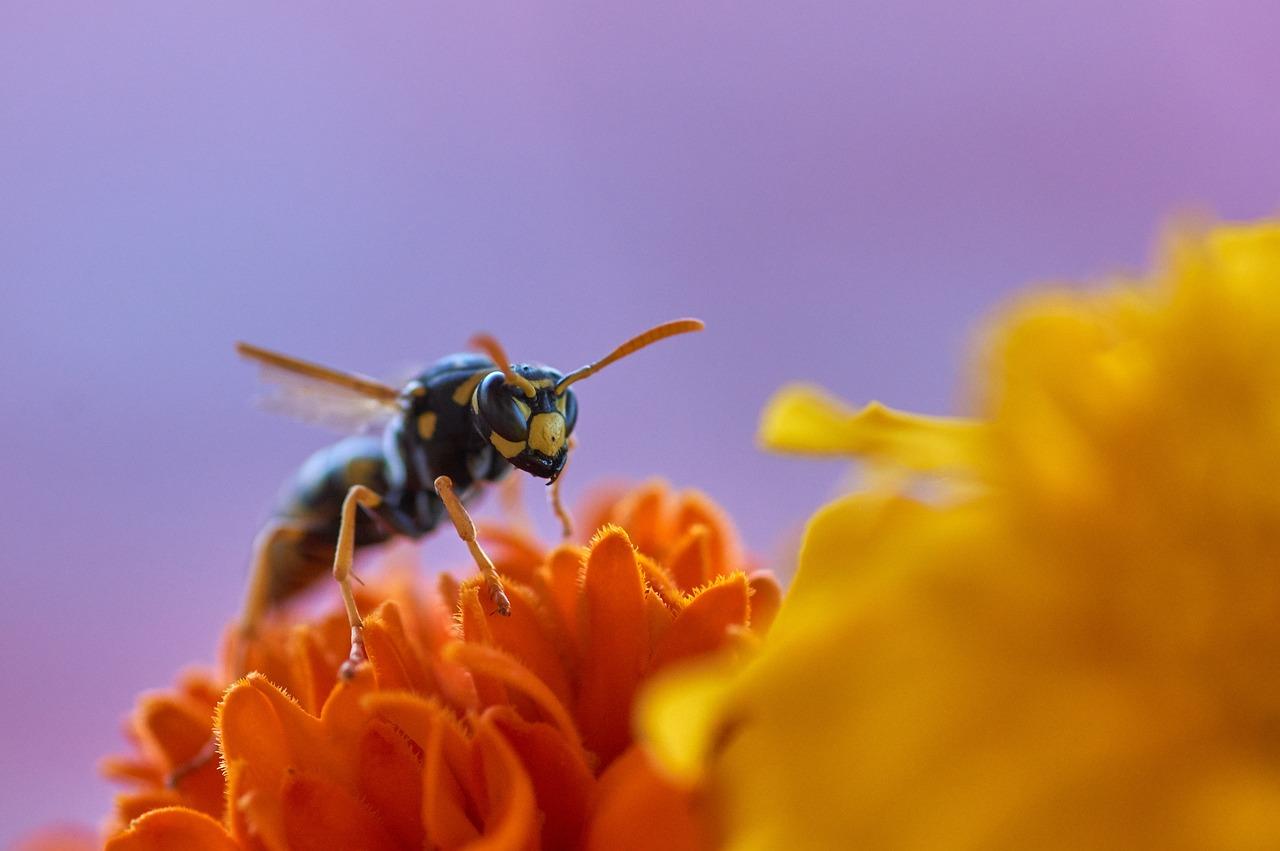How Long Do Wasps Live?
A colony of wasps is a well-oiled machine, with millions of years of practice to perfect their life cycle. While they can be a tricky insect to have around in your garden at home – or in an outdoor area if you own a business – they do contribute to the local ecosystem, acting as pollinators and controlling the population numbers of other insects.
To give you a better insight into the life of a wasp, and to answer the question ‘how long do wasps live for?’, we’ve created this short guide for curious minds.

Wasp lifespans
An adult worker wasp’s lifespan lasts, on average, between 12 and 22 days. That doesn’t, however, account for the different stages of growth they go through to become the worker wasps that you will likely see on the hunt for food.
Here is a rough idea of how the overall lifespan of an average wasp pans out:
- Wasp egg – this stage can last between 5-8 days
- Wasp larvae – this stage can last between 10-20 days
- Wasp pupa – this stage can last between 8-20 days
- Wasp adult – as mentioned, adults can be around for a few weeks or potentially a month
Total lifespan: the overall lifespan of a wasp from egg to worker drone can be between 35 to 70 days.
Do wasps hibernate?
Only the queen wasps can hibernate come winter.
Once the fertile females have mated, they leave the nest to become queens, but they must first hibernate in a protected space to enter a dormant state and survive the cold. This could be in your garage, under tree bark or in any other sheltered crevice, but they will only emerge to create a new nest once things start to warm up again in spring.
When do wasps die off?
The common worker wasps, females and males, will die off once temperatures get too low to survive. This usually occurs around autumn, since it’s when we start to see a dip in air temperature and wasps are susceptible to the cold.
Food scarcity in late summer/early autumn is also a contributing factor to when wasps die out. The nest will likely be in decline and the lack of food in the form of nectar and other insects to feed on will see many wasps starve and die out naturally.
Do wasps die after they sting you?
No, wasps do not die if they sting you, this is a trait mistakenly transferred onto wasps from honeybees. A wasp’s stinger, because it is smooth and retractable, allows them to sting multiple times if needed. This is usually deployed when they are defending the nest or if they feel threatened, making it painful for us humans.

How long do queen wasps live?
Queen wasps can live a lot longer than the average drone wasp, since their role is more important in continuing the colony. Queens will typically live for a year, dying within the nest itself once the young, fertile females have left and the temperatures start to plunge in autumn.
You can read more in our guide to queen wasps if you’d like to learn about their fascinating life cycle.
Professional wasp nest removal
Because their life cycle can span across spring, summer and autumn – with those latter seasons the point at which wasps become more aggressive – it can seem like wasps are a constant nuisance.
Most of the time, if you avoid swatting them, they’ll leave you in peace. However, if you suspect there is a wasp nest on your property and it’s causing havoc for your family or for your customers, don’t hesitate to contact us at Pest Defence. We provide safe, professional wasp nest removal to help rid you of these stinging pests to bring you peace and comfort this summer.
Call today to discuss wasp nest removal with our dedicated team and we’ll be happy to help wherever you are in the regions of London and Essex.
